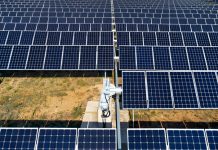The world is undergoing a transformative shift towards cleaner and more sustainable energy sources, and at the forefront of this movement are solar panels. These photovoltaic marvels have revolutionized the way we generate electricity, offering a renewable and environmentally friendly alternative to traditional fossil fuels.
1. The Science Behind Solar Panels
At the heart of a solar panel is a remarkable physical phenomenon known as the photovoltaic effect. This effect occurs when certain materials, typically silicon in modern solar panels, absorb photons (particles of sunlight) and release electrons. When these free electrons are captured, an electric current is generated.
2. How Solar Panels Work
Solar panels work through a series of steps:
- Absorption of Sunlight: Solar panels are installed in a location with direct access to sunlight. When sunlight strikes the solar cells, it excites electrons, releasing them from their atoms.
- Generation of Electric Current: The released electrons create an electric current when captured and channeled through an electrical circuit within the solar panel.
- Conversion to Usable Energy: An inverter then converts the direct current (DC) produced by the solar panels into alternating current (AC), which is the type of electricity used in homes and businesses.
- Utilization or Storage: The generated electricity can be used immediately to power appliances or stored in batteries for later use, providing a constant supply of electricity, even when the sun isn’t shining.
3. Benefits of Solar Panels
Solar panels offer numerous benefits that contribute to their widespread adoption:
- Clean and Renewable: Solar energy is a clean and renewable resource, generating electricity without emitting harmful pollutants or greenhouse gases. It relies on an inexhaustible source: the sun.
- Energy Independence: Solar panels enable homeowners, businesses, and communities to generate their electricity, reducing reliance on centralized utilities and minimizing energy costs.
- Environmental Conservation: By reducing the use of fossil fuels and mitigating greenhouse gas emissions, solar panels play a crucial role in environmental conservation and combating climate change.
- Financial Savings: Solar panel installations can lead to substantial long-term savings on electricity bills and may even result in excess energy that can be sold back to the grid.
- Low Maintenance: Solar panels are relatively low-maintenance, requiring occasional cleaning and inspections to ensure optimal performance.




